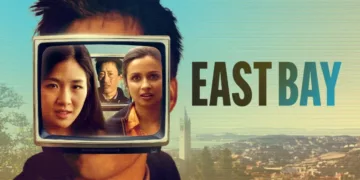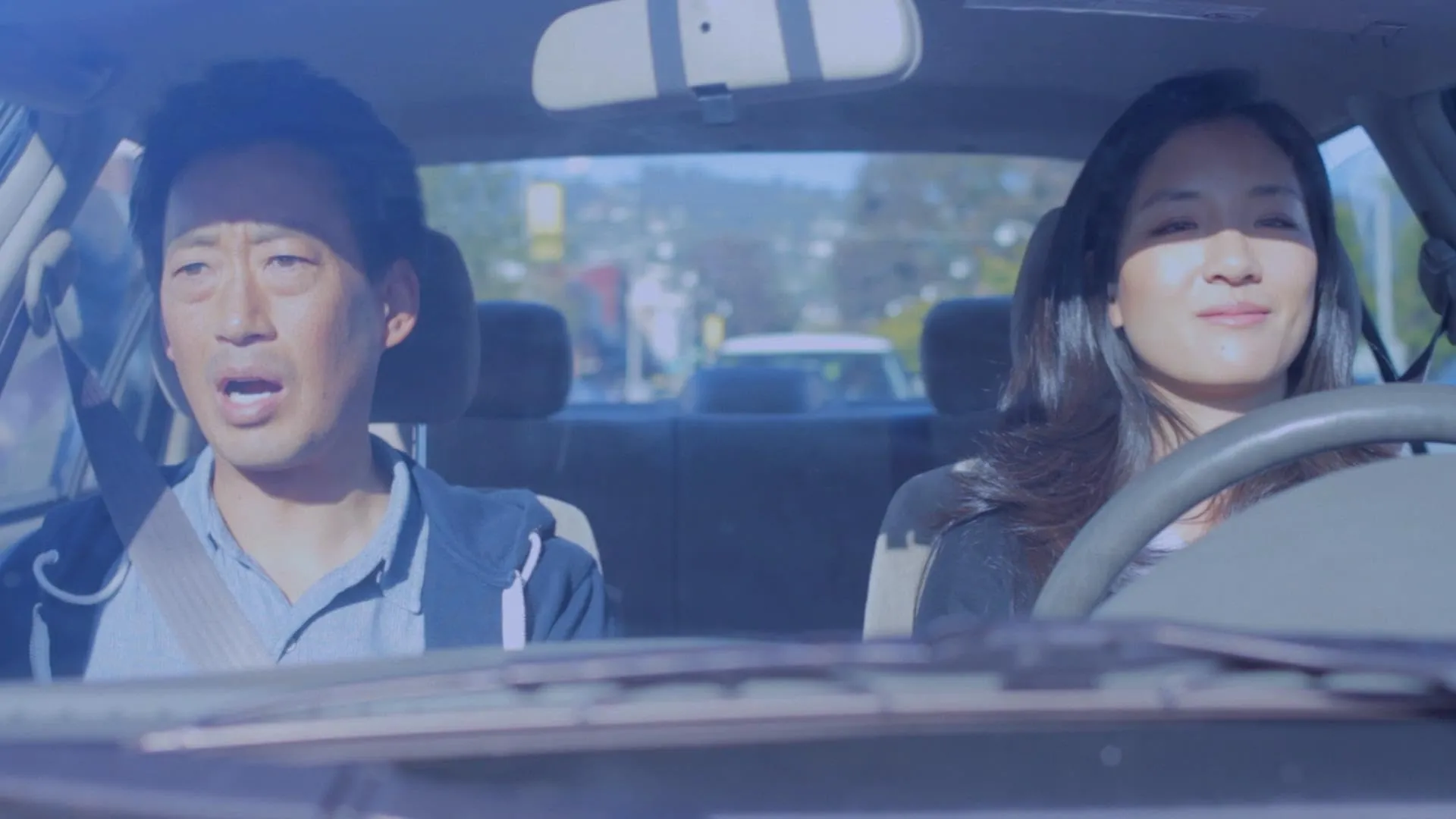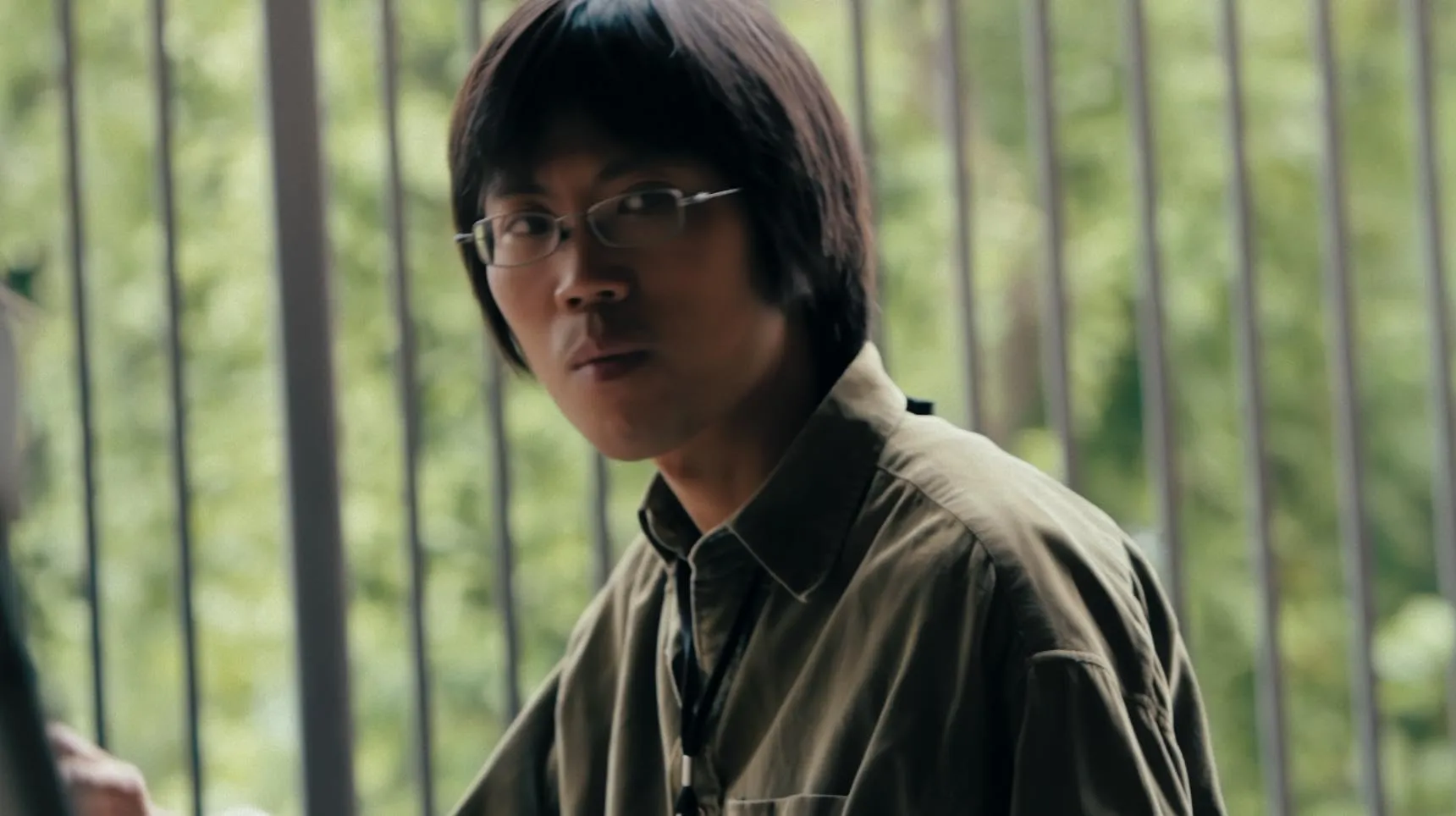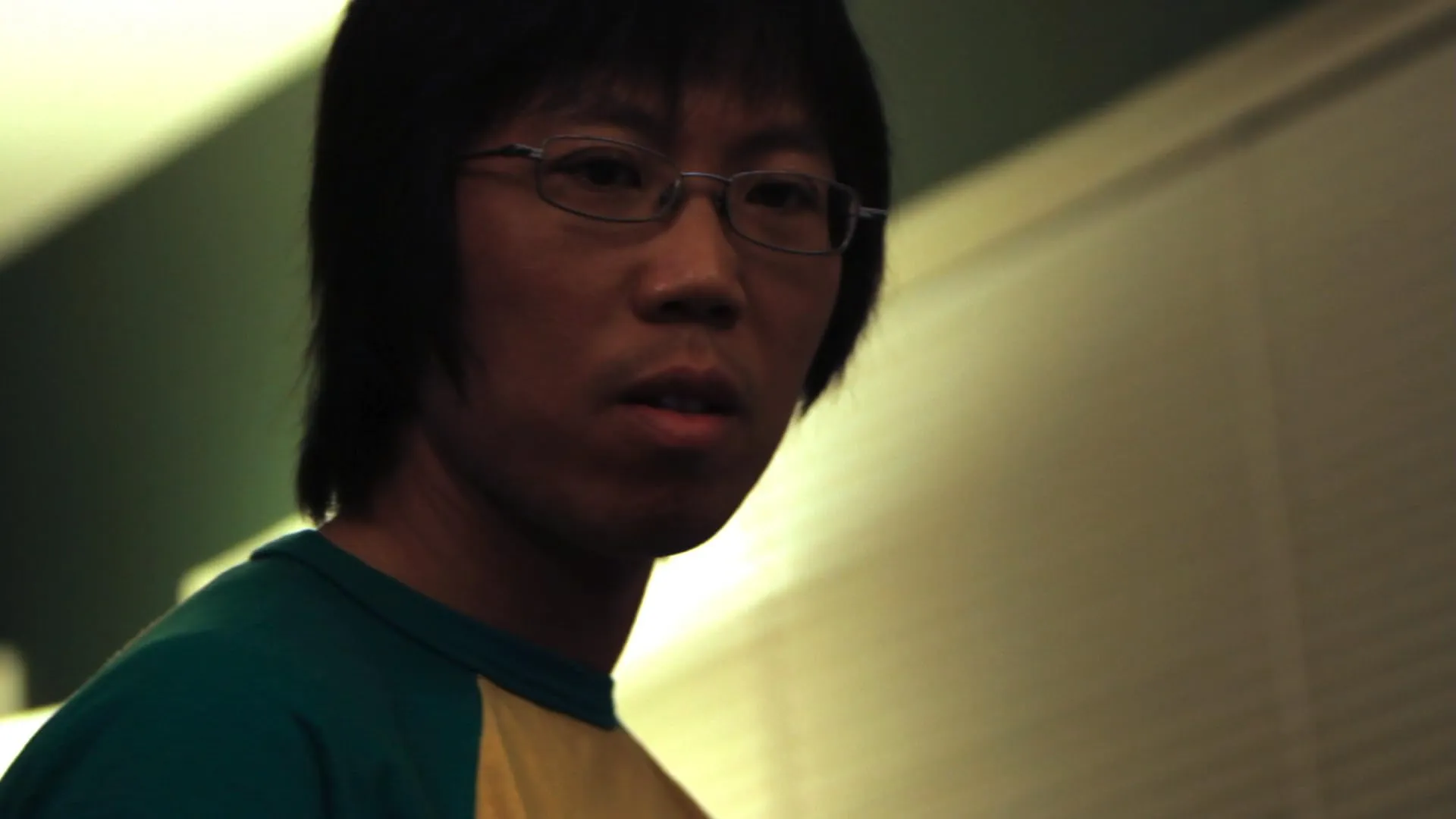Released in 2022, East Bay is an intimate drama from writer-director Daniel Yoon that shines a light on life’s everyday struggles. At its center is Jack Lee, a 39-year-old Korean American man grappling with failure both personally and professionally.
As an aspiring filmmaker, Jack pours his heart into short movies yet has little to show for the efforts. Facing doubts from family and peers, he questions if he’s doomed to a dead-end job with dreams unfulfilled.
Jack’s worries are all too relatable for many trying to forge their way in a complex world. Through his eyes, we witness the anxiety of a crossroads where paths diverge between hopes and harsh reality.
Guiding the story is Yoon’s empathetic and perceptive lens, peeling back layers to reveal what gives life meaning amidst uncertainty. With wit and warmth, East Bay explores timeless themes of finding purpose, bolstering relationships, and embracing life’s imperfections—no matter the challenges life throws our way.
The Twists and Turns of Self-Discovery
We’re introduced to Jack Lee, a 39-year-old Korean American man drifting through life in Oakland, California. Though passionate about filmmaking, his short movies find little success. Jack’s stuck in a dead-end job and fears being a lifelong disappointment to his immigrant parents.
Just when it seems things can’t get worse, Jack’s girlfriend leaves him for another. Crushed, he moves in with buddies Tim and Stuart, assuming they’ve got it all figured out. But living with them exposes each man’s hidden struggles. Tim spends his days baking while Stuart games away his time.
Seeking purpose, Jack delves into the teachings of New Age guru Vivanti. Her optimistic affirmations entice Jack, though a relationship grows where it shouldn’t. Meanwhile, festival director Sara has always championed Jack’s work, a friendship left unfinished.
Filming a documentary, Jack interviews acquaintances about faith and fulfillment. Each defines success differently yet fails to find lasting happiness. Frustrated, Jack questions if he himself has been searching in the wrong places.
The narrative flashes between timelines—Jack’s past and present woven together. We see intimate scenes alongside Jack’s bizarre film projects, like a Bigfoot political satire. This unconventional storytelling mirrors Jack’s unraveling grasp of reality.
When a festival rejects his latest movie, Jack reaches a breaking point. Vivanti’s high-minded words ring hollow against the disappointment. Jack lashes out, sabotaging the one good thing in his life—Sara’s care and belief in his talents.
Rock bottom proves the catalyst for change. Taking stock of those who truly support him, Jack gains clarity on his shortcomings and what really matters—the bonds of friendship above all else. With a newfound acceptance of life’s curveballs, Jack resolves to stay focused on the present, not an unreachable past or future.
The ending suggests no movie magic will fix Jack overnight. But by learning from others and dropping preconceived notions, he finds the strength to simply move forward—an inspiration for anyone struggling through uncertain times.
Daniel Yoon’s Visionary Storytelling
As writer, director, and star of “East Bay”, Daniel Yoon wears many hats but establishes a cohesive visual language throughout. More than just moving the plot along, Yoon uses imagery and technique to bring additional layers to the characters and themes.
We see the story unfold through Jack’s perspective, giving us entry into his restless thoughts. Flashes to fantastical visions, like his Bigfoot screenplay, show Jack wrestling with imagination and reality. Slow fades between scenes flow like memories, mirroring Jack’s ruminations on past failures.
When Jack obsesses over guru Vivanti, her scenes glow in warm hues that caress the eye. Close angles draw us near her charisma and promises of fulfillment. This contrasts bleaker lighting for when reality sets in over fantasies. Jack’s hollow apartment buzzes under stark white lamps, conveying an empty existence.
Compared to Jack, festival coordinator Sara lives vibrantly. Mid-shots allow her space yet feel intimate, as though Yoon invites rather than forces connection. Sara appears most alive advocating passion projects versus committee picks. This visual language hints at a potential harmony between Jack and Sara, if only Jack opens his eyes.
Clever compositions use reflection and shadows to show Jack, like viewers, only seeing life’s surface levels. Through friendship with Tim and Stuart, their real struggles emerge from dim recesses once hidden. Yoon handles these revelations deftly, avoiding shortcuts to find understanding in complex truths.
Elements like transitions and scores provide metaphor too. Fluid pants capture Jack wavering between optimism and doubt. Jazzy beats buoy emotions yet fade for Jack’s starker moments to land fully. Sound and image unite to immerse us in Jack’s psyche, empathizing with his trials through artful storytelling.
While some found the narrative segments jarring, Yoon’s passion shines through in reassembling life’s fragments into a cohesive mosaic. No moment feels extraneous; each piece fits perfectly within his daring, unconventional vision for authentically portraying one man’s journey of self-reflection.
By tapping rich themes through imagery, Yoon elevates “East Bay” beyond a character study. His unique visual language invites us on a resonant quest exploring failure and fulfillment, faith and disillusionment, and how wounded souls might find peace through empathy, courage, and community.
The Soulfulness of East Bay’s Performances
At the heart of East Bay are the lived-in performances that bring these flawed characters to life. As Jack Lee, writer-director Daniel Yoon taps into complex emotions with subtlety. Early scenes depict Jack’s defeated mien, yet glimmers of hope kindle as his journey unfolds.
Yoon makes Jack’s introspection viscerally real. We feel his acute self-doubt and longing to matter. Regret and shame haunt Jack’s eyes, yet resilience emerges through rekindled connections. In intimate moments, small gestures from Yoon say volumes. His layered portrayal makes Jack’s growth profoundly moving.
Another standout is Constance Wu’s radiant Sara. Sara’s caring nature and passion for her work shine through. Wu imbues each scene with gentle earnestness that steals our hearts. Her emotive skills bring nuance to Sara’s private doubts, and the vulnerability she reveals elevates their dynamic.
Opposites attract in Jack and Sara, yet both wrestle with feeling inadequate. Wu and Yoon share lovely chemistry, portraying souls recognizing themselves in one another. Their simmering connection feels authentic, enhancing the film’s empathy and heart.
Edmund Sim and Destry Miller bring humor as Jack’s housemates Tim and Stuart, yet their grounded performances reveal deeper truths. Sim paints Tim with sly humor but depicts his isolation with subtle grace. Miller finds poignancy in Stuart’s detachment from mundane distress. Together, they form an unlikely yet committed support system for Jack.
Kavi Ramachandran Ladnier infuses spiritual coach Vivanti with seductive charisma. Vivanti’s fantasies appear blissful through Ladnier’s radiant embodiment, yet cracks emerge, revealing manipulation. Ladnier deftly vacillates between Vivanti’s attractive allure and the darkness beneath, unsettling us as she does Jack.
East Bay comes alive through these soulful characters brought to heartfelt life by dedicated performers. Complexities surface through minute gestures and choices conveying interiors with compassion. These nuanced portrayals illuminate how individuals persevere against disappointment by seeking purpose through human bonds. Ultimately, the film celebrates our shared hopes and fragilities within community as its inviting ensemble performs movingly.
Quests for Significance
At its core, East Bay tackles what gives life significance. Protagonist Jack grapples with his perceived failures, unsure how to define success. He anxiously searches for purpose, trying relationships and careers that bring fleeting fulfillment.
Jack feels he’s let down his immigrant parents by not meeting their standards of being a “success.” This pressure haunts him, as does shame over watching career aspirations fail. Yoon explores how society can narrowly define success, exacerbating inner turmoil over dashed hopes.
Yet Jack’s story underscores that true happiness stems not from titles or wealth but from connections and well-lived values. Tim and Stuart initially seem carefree to Jack, but he finds meaning in their unlikely friendship. Their bond reassures viewing life’s simplicity rather than solely through achievements.
Jack’s storyline spotlights finding purpose through shared experiences over solitary pursuits. This theme rings familiar for those confronting diminished dreams or feeling behind in life’s rat race. East Bay reminds us that joy can emerge from community rather than material victories alone.
Spiritual coach Vivanti tempts Jack with a guru’s allure, promising empowerment. But her teachings prove hollow, lacking authentic caring. The film warns against defining significance through surface validations instead of intrinsic values.
Festival director Sara genuinely supports Jack, seeing his potential. Her belief in his artistry kindles Jack’s hopes, showing how compassion from others can lift one’s outlook. Their connection indicates purpose arising from both career passions and human connections.
Ultimately, East Bay portrays one man’s realization that meaning in life emerges from within rather than external benchmarks. Jack comes to accept his worth isn’t measured by another’s narrow standards. He finds solace in recognizing his humanity through relationships, recreation, and remaining true to his creative spirit.
In the end, East Bay conveys that fulfillment springs from myriad sources, not solely from traditional success. It celebrates finding purpose through shared joys, creative endeavors, and embracing life’s ambiguities—ideas that will undoubtedly resonate with many viewers on their own journeys for significance.
Insight Through Imperfection
East Bay joins the ranks of films that find universal truths in examining personal struggles. Like Woody Allen’s introspective Stardust Memories, it focuses on one man’s creative and emotional journey. And like Fellini’s 81.2, East Bay blends reality with fantasy to convey its protagonist’s state of mind.
Where those classics had blockbuster budgets, East Bay demonstrates personal stories can resonate through delicate, nuanced filmmaking. Writer-director Daniel Yoon brings an empathetic, thoughtful lens to exploring midlife disillusionment and the search for purpose.
Central to how East Bay presents its timely themes is Yoon’s unconventional editing approach. While some may find the segmented, nonlinear structure disjointing, it appropriately mirrors the fractured nature of lead character Jack’s psychological state. By shifting between fantasy and reality, past and present, Yoon invites us inside Jack’s perceptions and anxieties.
This allows for vivid character development despite a low-key aesthetic. Fragmented flashbacks reveal layers to Jack’s friends and loves that deepen our connection to them. We understand how experiences—seen and unseen—have shaped each person. Transitions between scenes feel less like strict narrative progress and more like glimpses into lived experiences, imperfect as real lives are.
By blurring reality, Yoon questions how much we can truly understand others and where fulfillment truly lies. Is it in hollow pursuits of prestige, as Jack originally believed? Or within genuine human bonds and creative spirit, as he comes to realize? Through its discursive storytelling, East Bay inspires reflection on life’s intricate puzzles and messes without claiming to solve them.
Above all, what resonates is Yoon’s compassion for humanity’s shared fallibility. By honing in on imperfect characters navigating life’s disappointments together, East Bay finds optimism in community and self-acceptance over fantasies of flawlessness. It leaves an enduring impression through empathizing with our common searches and struggles.
Deeper Reflections
East Bay quietly delivers a profound experience by honing in on what makes us human. While Jack goes through challenging times, the film finds empathy in our shared imperfections.
Daniel Yoon invites us to walk in another’s shoes through his compassionate storytelling. By blending reality with fantasy, he captures the messy, intricate reality within all of us. East Bay reminds us that even when we feel most lost, connection with others is where we often find ourselves.
Yoon’s directing style masterfully brings this message to life. His unconventional editing mirrors the nonlinear nature of thought and memory. And his cast brings such earnest authenticity to each character, forming bonds with the audience. Through them, we realize life’s disappointments are easier borne together, its simple joys made sweeter by sharing.
Most of all, one cannot help but be moved by Yoon’s passion for humanizing varied experiences. East Bay shines a light on those persevering with quiet optimism, even in modernity’s darkest hours. And in giving voice to lives too often unheard, Daniel Yoon adds color and meaning where once was shade. His films celebrate the strengths hidden within society’s most everyday members and remind us to do the same for one another.
As Yoon continues expanding his cinematic world, independent films are richer for his thoughtful vision. East Bay proves poignant dramas don’t require blockbuster budgets when a director so treasures humanity. Its beauty lies in sparking deeper reflections that linger long after credits roll. For this, it will remain an enduring work of art.
The Review
East Bay
While its unconventional storytelling may not appeal to all, East Bay offers a poignant look at life's intricate puzzles. Director Daniel Yoon brings empathy and compassion to exploring universal themes of purpose, acceptance, and human connection. Led by profoundly human performances, it finds beauty in imperfection and reminds us to cherish shared moments of understanding. For stirring deeper reflection and valuing varied voices, East Bay deserves to be experienced.
PROS
- Thoughtful exploration of meaningful themes like purpose, failure, and relationships
- Masterful performances that feel authentic and bring characters to life
- Unique directorial style through editing and visual grammar enhances themes
- Captures messy realities and humanity within imperfect characters.
CONS
- Unconventional storytelling through nonlinear structure may frustrate some.
- Slow pace won't appeal to all and could test patience at times.
- Minimalist cinematography and quiet dialogue won't be to everyone's tastes.






















































Discussion about this post